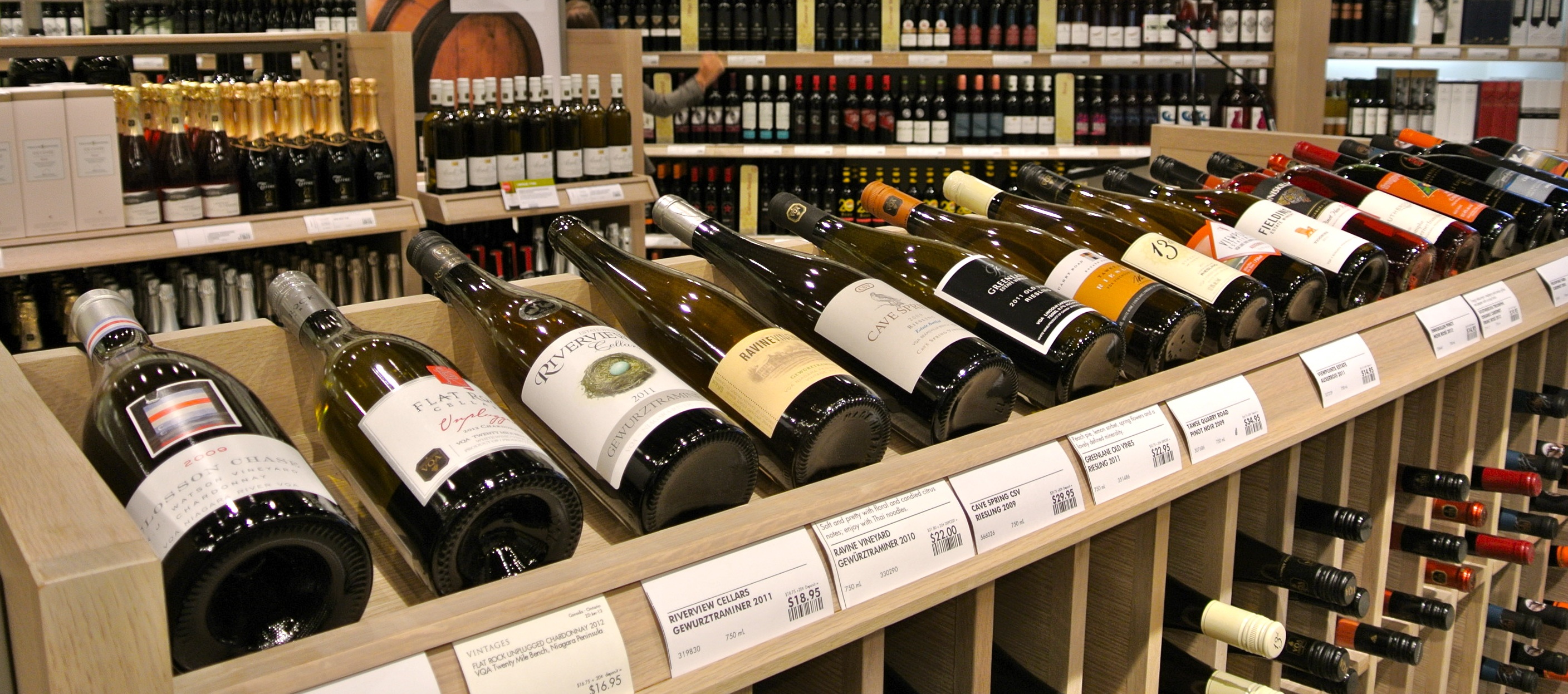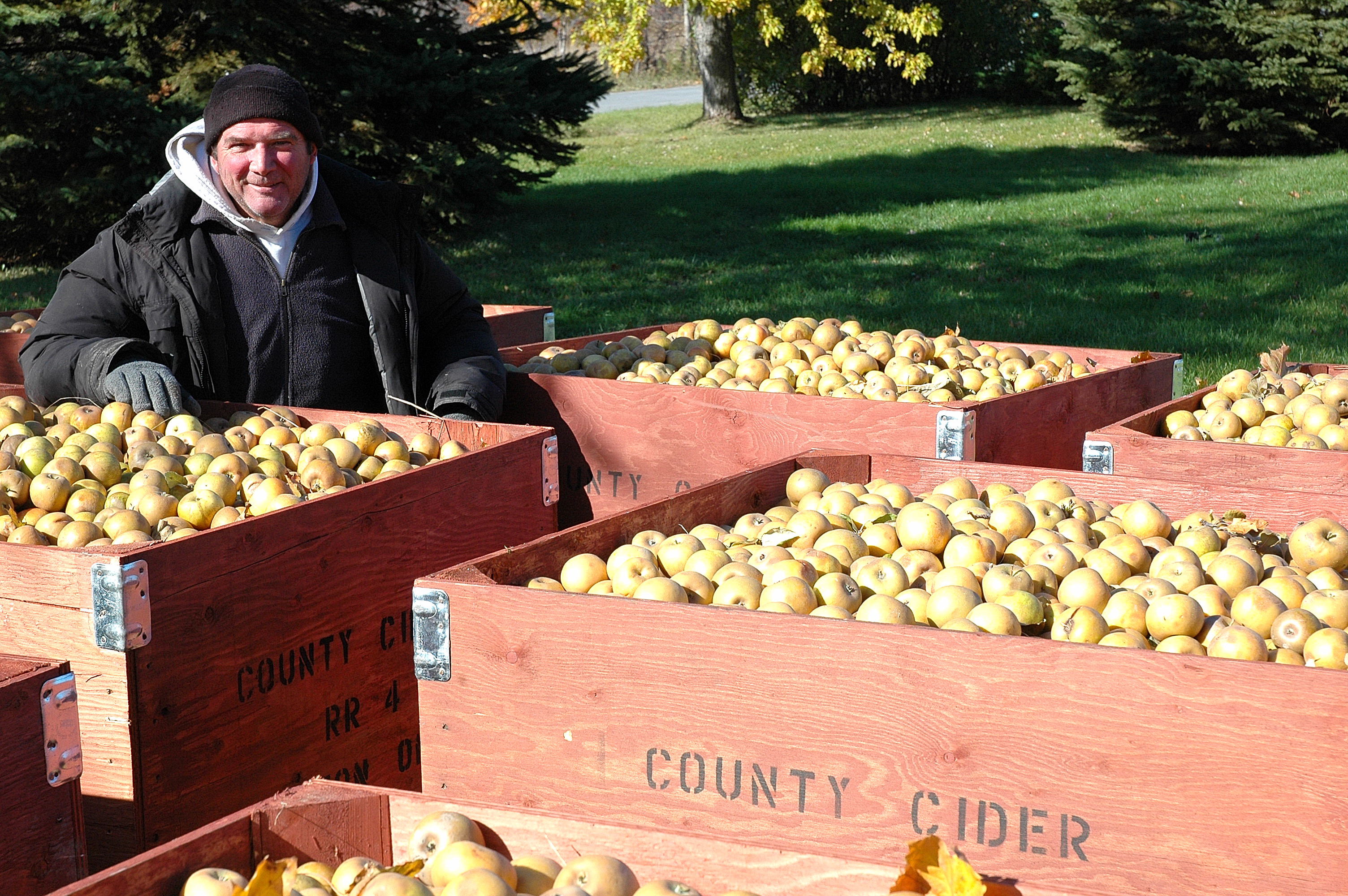
Updated: Sometime this fall, as grapes in Ontario vineyards reach their plump and ripe potential, a brave new world begins in this province with the first bottles of wine hitting shelves at select grocery stores.
For anyone who has ever ventured beyond the borders of Ontario they are fully aware that this is how it is done in most jurisdictions in the democratized world. A free and open market for the retailing of beer and wine is a luxury Ontario residents have never enjoyed. Since Prohibition was repealed in 1927, the retailing of alcohol has been severely (brutally?) monopolized and controlled by the Liquor Control Board of Ontario. Very little has changed since 1927 as the LCBO bureaucracy took on a life of its own, circling the wagons and ruling the liquor business in Ontario with an iron fist all with the government’s blessing (and each and every government since 1927).
The LCBO became (and is) so powerful that no government could find a way to send it back to the cave from where it came.
The result is what we have today. A money-gouging machine based on old-fashioned values (that bullshit phrase the LCBO — and its lap dog union — keep trotting out: “social responsibility”) that offers residents of Canada’s largest province the worst selection of booze, especially wine, at the highest prices possible. We are the laughing stock, the one jurisdiction other people point to as an example of how not to retail booze. It is a nightmare for consumers even remotely interested in a varied selection of wine and booze, a bureaucratic shit show for agents trying to flog new wines from emerging regions or winemakers, a dead zone for Ontario wineries, and, let’s face it, the most uncool place on earth to shop for wines with cookie cutter stores dotting every town and city in the province.
The LCBO is the LCBO. The one letter that sticks out for all of us is the C, as in CONTROL, which is what they do very well.
(listen to this interview I did with Newstalk 1010’s Jim Richards on the grocery store wine sales below)
/]
So, to see a little bit of that control wrestled away is satisfying, even if the changes seem insignificant and laughable to a great many people.
The National Post summarized nicely some of the changes coming to booze retailing after the government made the official announcement on Thursday. They are:
300 stores by 2025

Almost a decade from now, 300 grocery stores in Ontario will sell wine, beer and cider. Another 150 will sell just beer and cider. Of the 300 stores selling wine, 150 are existing winery-owned retail stores that will be better integrated into food aisles and checkouts. That half of the store will only sell Ontario wine and will be required to fill at least half its shelves with bottles from brands and vineyards not owned by the retail outlet.
Opening up cider sales

Cider was left out of last year’s beer in grocery stores initiative because it was technically classified as a wine. It will now be allowed to be sold alongside any beer in grocery stores.
More bottles at farmers’ markets
Wine sales at farmers’ markets have proven very successful, and new regulations will make it easier to ship and store vintners’ goods near markets — which was once a big barrier to a winery in, say, Prince Edward County getting to an Ottawa-area market. Cider and fruit wine will also be sold at farmers’ markets, but not beer. Why? Because trade rules require agricultural products to be sold at those markets, and lawyers advised beer wouldn’t make the cut.
More boxes of wine
One odd recommendation in the expert panel report: “The LCBO should gradually expand the assortment of bag-in-box wine to additional imported and domestic products.” Campers everywhere rejoice, as wine snobs wonder why.
No private stores
Both distillers and wineries pushed for a limited private retail channel, largely for premium products, outside the LCBO system. But the 150 new wine-and-beer licenses won’t be opened up to private entrepreneurs. Instead, they’ll be restricted to grocery stores. That said, the government is restricting a number of licenses to independent outlets, so giant corporations won’t control all the sales.
Who gets to choose the wines?
General wine and beer licences will allow most grocery stores to stock and choose a mix of international and domestic wines, but some will be restricted for three years to VQA wines to help grow the industry. The LCBO will still serve as the exclusive wholesaler for grocers.
A fixed price
Grocers won’t be allowed to sell wines for less than $10.95 a bottle for a number of reasons, including concerns about social responsibility — but also to reduce competition with the LCBO. Prices for bottles at the LCBO — especially fortified wines and ports — could increase slightly as the government moves to align wine’s minimum pricing standards with those already in place for wine and spirits.
A new spirit
Craft distillers are popping up across Ontario and they’re fighting for a place at the table. They won’t get grocery store sales, but they will be allowed to sell directly to restaurants — a big win that brings them in line with other local booze offerings. And the report recommends their tax system be reformed to allow greater profits from on-site sales, which would lift current regulations some distillers are currently challenging in court.
With change as big as this, there are winners and there are losers. Let’s run through them here:
WINNER: Ontario wineries, grape growers and industry workers
Obviously this is huge for the Ontario wine industry. Of the 70 grocery stores that will be selling wine by the fall, 35 of those will be VQA Ontario wines only. The other half will be a mix of Ontario wines and international wines.
 Richard Linley, president of the Wine Council of Ontario, told the Niagara Falls review that this is a “positive first step in levelling the playing field” for Ontario VQA wineries.
Richard Linley, president of the Wine Council of Ontario, told the Niagara Falls review that this is a “positive first step in levelling the playing field” for Ontario VQA wineries.
“The proposed approach will have a direct positive impact on the future of Ontario VQA wineries, leading to increased sales, growth and job creation in our industry,” he said. “Future retail channels will also help complement our industry’s longstanding and important partnership with the LCBO.”
Patrick Gedge, president of the Winery & Grower Alliance of Ontario told the paper: “This is of real significance to our industry. There is potential for us to grow the industry as a result of that … to grow the sale of Ontario wine, buy more Ontario grapes and increase our economic impact to the province.”
Indeed. Prior to this announcement there were only two choices for consumers to buy Ontario wine: The retail stores at the winery, which required a long drive if you don’t live in a wine region, or at the LCBO, where a woefully inadequate selection of VQA wines are seemingly chosen with little or no thought. If the LCBO rejected your wine, didn’t like the colour of your shoes, or you pissed them off in any way, that’s it for you! No wine at the LCBO and no recourse.
Wineries now have a great opportunity to hand sell their wines to various grocery stores and improve their bottom line and get better wines into the hands of consumers.
Even though it’s just a start, it is a game-changing start for the Ontario wine industry.
WINNER: The Ontario craft cider industry
Not only were Ontario craft cideries given access to grocery stores and farmers markets but specifically they were finally recognized as a craft beer like product.
The Ontario Craft Cider Association outlined the key points that benefit the industry:
• Allowing cider to be sold wherever beer is sold in grocery stores
• Including fruit wines and craft cider in a program that allows Vintners Quality Alliance (VQA) Ontario wines to be sold at farmers’ markets
• Reducing red tape and eliminating unnecessary regulations to increase opportunities and deliver cost savings for producers and their customers, including new opportunities for craft distillers.
The report also recommended that the government consider whether there are alternate mark-up structures for spirits and cider that would better enable small producers to scale up, a huge problem for cider makers presently.
WINNER: Consumers
How can this not be good for consumers? More convenience, better selection and a whole new structure of retailing where they can voice their opinion — and be listened to. This is all good for you and me.
WINNER (maybe): Premier Kathleen Wynne and the Liberals
Though this announcement falls far short of the real prize, which is privatization, it does take Ontario one step out of the dark ages. Ontario is still a heavily restrictive jurisdiction to buy alcohol but a lot of work has gone into a plan that at long last is being implemented to benefit Ontario wineries, craft beer makers and cideries. The benefits for them will be felt immediately.
How this all translates to Wynne keeping her job as premier remains to be seen. She has made an enemy with the all-powerful LCBO’s Ontario Public Service Employees Union who won’t forget this come election time. Wynne’s motives, gouging the consumer even more than the she and her government did before, aren’t purely in the interests of the consumer or Ontario’s wineries. Her true motive is to put even more money into government coffers, and she will achieve that, but how much more is the consumer willing to shell out? Time will tell.
WINNER: Ed Clark, the man tasked with modernizing Ontario’s liquor laws
A real tough job for the former banker with twists and turns, egos, laws to overcome, road blocks and threats aplenty. I’m sure he’s kicking back with a great big bottle of bourbon and trying to forget this entire nightmare he went through. From his point of view, he has done all that he can do and can only sit back and watch where it goes from here. If he secretly believes that this small chink in the armour of the LCBO will lead to privatization in the future, then I salute him. If this is his idea of a modern retailing system, then he needs to get out more.
WINNER (tentative): Grocery stores
Grocery stores not only have a huge responsibility to make this work but it is also a huge opportunity to do something truly wonderful if they do it right. Each store that successfully bids on these licences should immediately find the right people to plan and stock their shelves with the right wines, especially VQA wines. It cannot be based on what the LCBO does, and, in fact, they should start from scratch and build a portfolio that will make their stores a destination for well-curated wines.
I would hope that neighbourhood stores will appeal to the demographic they serve. I would hope that there is a wide selection and price point of wines available to shoppers.
Grocery stores need to be open to suggestion from wine country wineries that come knocking on their door with their products. They should work hand in hand with local wine producers and local produce producers. This is a big opportunity to push the local brand that is Ontario. If grocery stores try to be just like the LCBO they will become losers instead of winners very fast.
LOSER: The LCBO
I would be crapping right now if I worked in the ivory tower at the LCBO. This is the very beginning of the dismantling of that brutal monopoly that has had its dictatorial ways unchallenged for nearly a century. The foundation has finally cracked and it has two choices: Be better, a lot better, or stay the same and hasten its own demise. I’m not certain the LCBO culture can change, so I’m betting grocery stores will out-shine them in every way possible and put a bright spotlight on the need for the private sector to finally do what it does best: Retailing in a free and open environment.
LOSER: Smokey Thomas, head of OPSEU
Smokey needs to climb back into that cave he came from. The world has passed him by. We no longer have B&W TVs or phones with cords and rotary dials. May we suggest a vacation, a long vacation so he can enjoy the modern world, which exists beyond the border of Ontario. You are a dinosaur among dinosaurs, sir, step aside. This is going to get messy.
LOSER?: Big wine companies
We’re talking here primarily about Peller Estates, a good Canadian-owned wine company with a very good portfolio of VQA wines (and, of course, their blended international/domestic blends that we won’t get into to here), and Constellation Brands, the American company that was once Vincor, a good Canadian wine company that bought up and started some of this country’s greatest wineries (also with some fine VQA properties that are top-notch). They own the bulk of the “grand-fathered” private wine licences that operate primarily at the front of grocery stores. They have lost a great deal of their exclusivity and many of the stores will be moved deeper into grocery stores and will have to accommodate other Ontario wines. This is a major loss and they will have to re-think their business plans, but it is the right thing to do to level the playing field for all Ontario wineries. To call them losers, might be stretching it a bit. They get to keep the majority of their licences and can move them wherever they want. My hope would be that they come together with other VQA wineries in Ontario and work toward one common goal — making great VQA wines with a unified approach to marketing and promoting VQA wines. Let those blended wines find their own level of acceptance, or let’s begin the process of eliminating them altogether. The time has come.





Great summary and analysis Rick! I can’t help but think that there are more restrictions to come on the sale of wine – likely maximum square footage/shelf space, total annual value (like the appalling $1m limit for beer), perhaps number of brands, maximum value of a bottle., etc. This is a terrible compromise and over 80 percent of Ontarians will not have wine in their local supermarket even when the full rollout is complete. I’m still pleased though, from a “thin edge of the wedge” perspective :-)
Yes, the thin edge of the wedge… we will see how this plays out. That $1M limit for beer can be exceeded, but it comes with a an added tax. Grocery stores will have to decide whether the extra tax is worth it to them. The price of the beer will remain the same as the price at The Beer Stores. It’s all about margins.